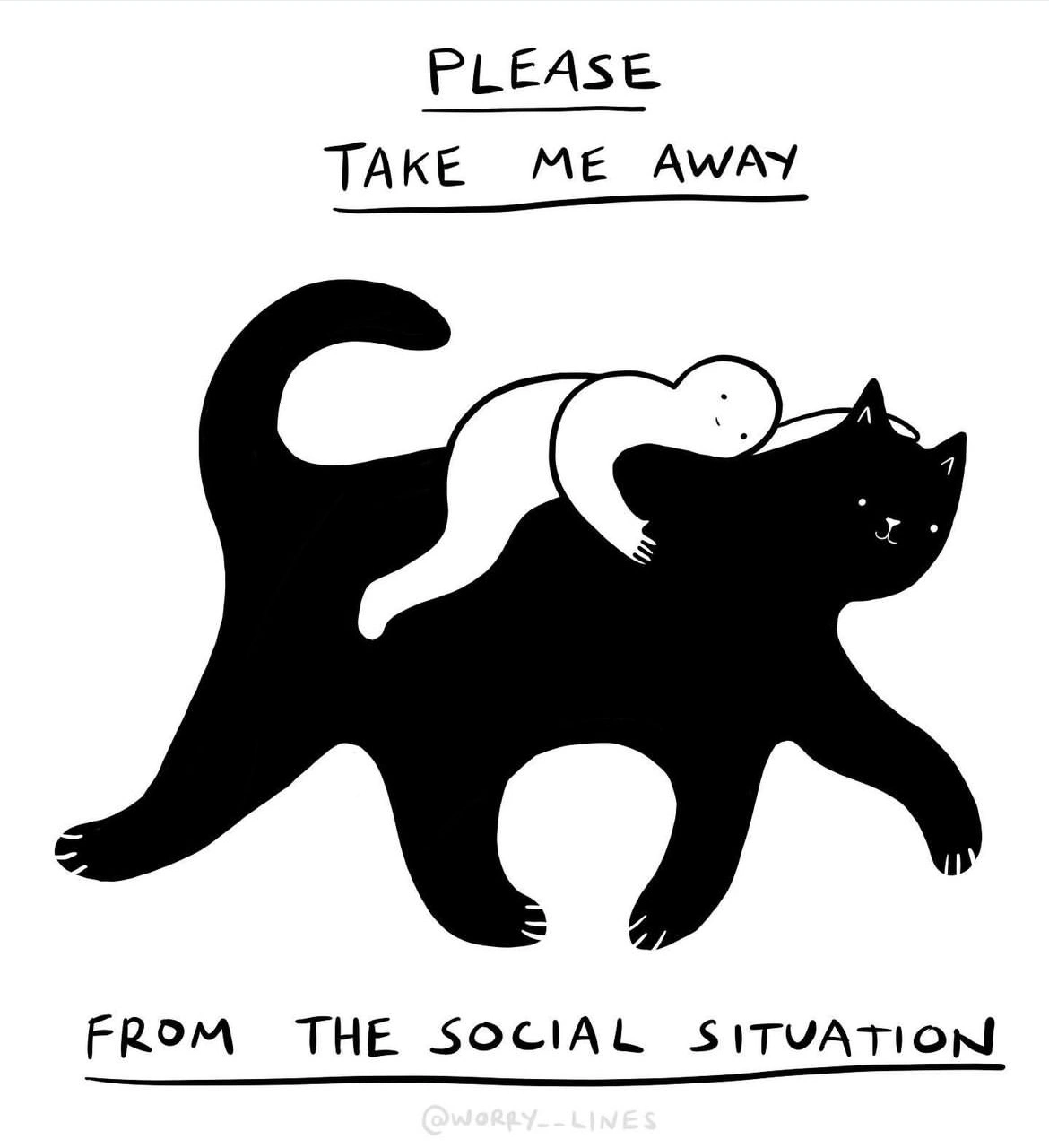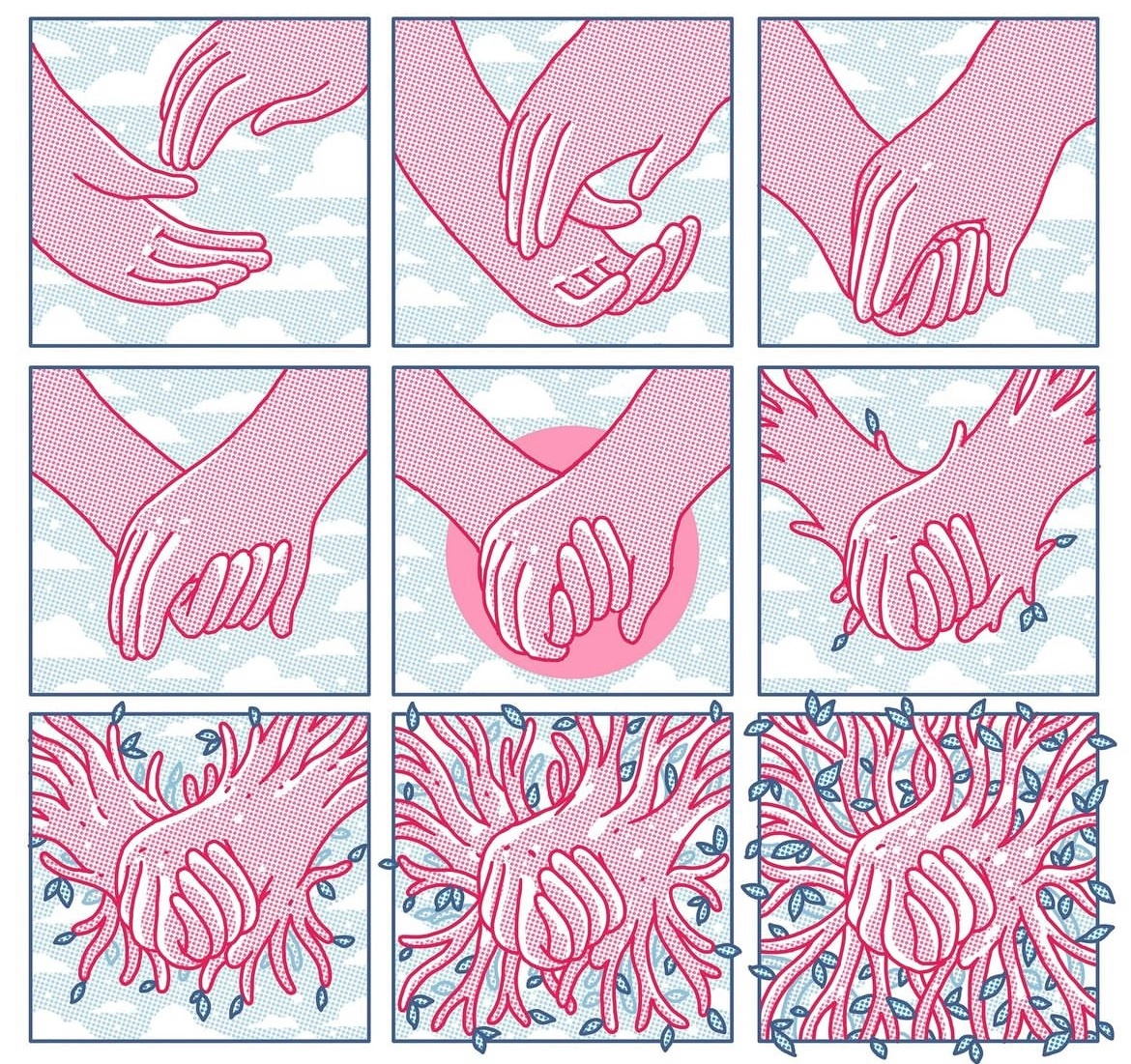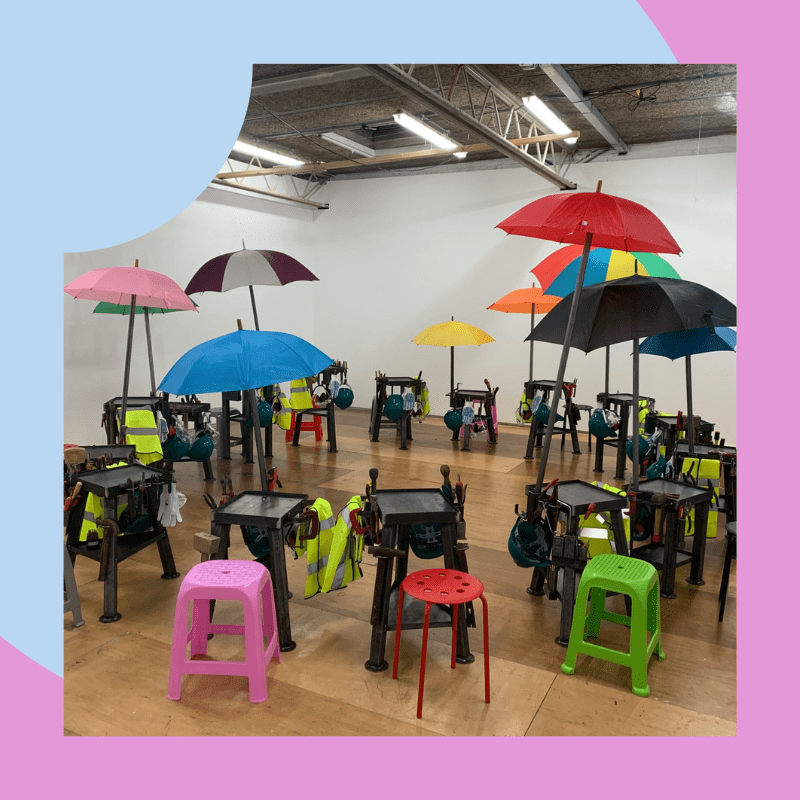Check In With Yourself
Networking isn’t a one-size-fits-all approach. Some creatives thrive in networking environments, while others may feel anxious or overwhelmed.
Ask Yourself: How Do You Feel About Networking?
Begin by acknowledging your feelings towards networking. You might experience lots of different emotions ranging from anxiety and overwhelm, to excitement and confidence. Being self-aware of these emotions is essential before diving into the networking deep-end, a place which can often feel uncomfortable for introverted creatives.
We always start with the ‘how to’ and never the ‘how are you’. Yet this is the foundation we need for successful networking – we need to be met on our level.
Carmela Vienna, Creative Networking Workshop Mentor
Go Deeper: Understanding Your Feelings
Now you know how you feel, why do these feelings arise? Act as your own mini-therapist and explore your common pain points.
If you feel anxious…
Perhaps a past negative networking experience has left you apprehensive.
Or maybe you feel inexperienced or fear unfamiliar situations
If you feel excited…
You might be networking in a cool venue, or with a group of creatives you’ve always wanted to meet. The prospect of building and nurturing relationships with creatives brings you joy and energy.
If you feel overwhelmed…
You might freeze when conversation lulls or feel triggered to leave the situation.
Additionally, if you are neurodivergent, being around many people might be overstimulating.

Bonus Tip: Discover Your Personality Type
Taking the 16 Personalities Test can enhance your self-awareness and help you understand your networking tendencies better. This knowledge will be invaluable in finding a networking approach that suits you.
Reframe What Networking Means
Many creatives dislike the word “networking” because it feels corporate and overly social, which can be intimidating for introverted or shy artists. Creatives often express themselves best through their work, making social interactions daunting for many.

Think of Networking as Making Creative Friends
Cannes Future Lions judge and creative coach Jo Bird describes networking as “making creative friends.” Cultivating friendships with like-minded people in the creative industry without any expectations or attempts to sell to them removes the formalities, and instead emphasises the meaningful connections you form.
I’ve been making friends, nurturing those friendships, helping people when they needed, cheerleading from a distance.
Jo Bird, Cannes Future Lions Judge and Creative Coach
Practical Tips
Nurture Friendships
Treat your creative friendships like you’d treat a plant – watering them little and often helps them grow, and keeps you at the top of their mind.
Cheer from a Distance
Even if you aren’t constantly in touch, show your support through likes, comments, and sharing their work.
Help When You Can
Offer advice, share opportunities, and be a resource for others without expecting anything in return.
Define Your Networking Success Metrics
When it comes to networking, quality beats quantity every time. Focus on cultivating fewer, deeper relationships with clear intention to align your efforts with your professional goals.
Ask yourself these important questions:
What Opportunities Do You Want?
Define what you aim to achieve through networking. Are you looking for job opportunities, collaborations, or mentorship?
Are You Reaching the Right People?
Identify where you can find these opportunities. Are you attending the right events or connecting with the right people online?
What Steps Do You Need to Take?
Outline the actions required to reach your goals. Do you need to attend specific events, schedule more coffee meetings, or diversify your online engagement?

Measure Your Networking Success
Consistency is crucial for expanding your network over time, so commit to dedicating a set amount of time to networking each month. Even investing just 10 minutes daily can yield substantial results. Experiment with various approaches to determine the most effective strategy that fits into your schedule.
For Extroverts:
This might involve attending two events a week, having a couple of coffee meetings each month, and spending time in online groups.
For Introverts:
This could look like attending one event a month, one coffee a month, and spending 20 minutes daily networking on social media.
Top Tip: Don’t Forget to Reward Yourself
Once you’ve defined your version of networking success, remember to reward yourself when you achieve milestones. Buy that creative book you’ve always wanted after attending your first event, or take yourself on a day out after six months of consistent networking that leads to a new, exciting project.
Networking isn’t all for nothing – make it worthwhile and self-motivate by celebrating your achievements.
Play to Your Strengths
Networking isn’t confined to social media or attending events alone, hoping to bond with strangers. It’s about leveraging your strengths to build connections in ways that feel natural and comfortable to you.
For Introverts
If you’re more introverted, consider these strategies:
Leverage Mutual Friends
Ask mutual friends for introductions to people in your industry.
Meet for Coffee
Opt for 1-2-1 meetings with new connections instead of attending big events alone.
Network Laterally
Focus on building connections with people on your career level rather than aiming directly for top-tier contacts.

For Extroverts
If you’re more extroverted, you might find these approaches beneficial:
Attend Events
Participate in networking events, workshops, or meet-ups where you can interact with like-minded people and feel energised.
Engage in Group Activities
Join group activities or creative projects where you can collaborate and build connections.
Bonus Tip: Don’t Forget Your Existing Network!
Sometimes we’re so focused on creating new connections that we forget about the ones we already have. Write a list of people with similar interests whom you haven’t spoken to in over a year. Rekindle these friendships – both of you will have grown in that time, and this can lead to renewed and even stronger connections.
Practice Makes Better
Building confidence in networking is a skill that improves with practice. We all have to start somewhere, and as you gain experience, you’ll become more comfortable articulating your ideas and connecting with other like-minded creatives.
Have These Tools in Your Toolkit
If you’re more introverted, consider these strategies:
Craft Your Elevator Pitch
Define who you are, what you do, and why it matters. Practice speaking it aloud to perfect the delivery—aim for around 30 seconds.
Have Conversation Starters Ready
Prepare a few questions in advance to break the ice or revive a stalled conversation.
- What brings you here today?
- Tell me about what you’re currently working on?
- How did you get into the creative industries?
Practice Active Listening
Demonstrate genuine interest in other creatives’ work by actively listening during conversations. Approach interactions with a mindset of giving rather than just receiving. Seek opportunities to support their goals or find common ground to connect on.

Top Tip: The 1% Better Mindset
The concept of continuous improvement applies to networking as well. Every small step forward—like connecting with just one new person each month—adds up over time. By consistently expanding your network, you gain access to new opportunities and connections within their circles. So embrace opportunities to network no matter how insignificant they seem, as they can lead to significant growth in your creative community.
You have all the tools needed to expand your creative network. Now time to venture out and forge those dream connections.
Let us know you want us to write more content like this with a love!
Share









